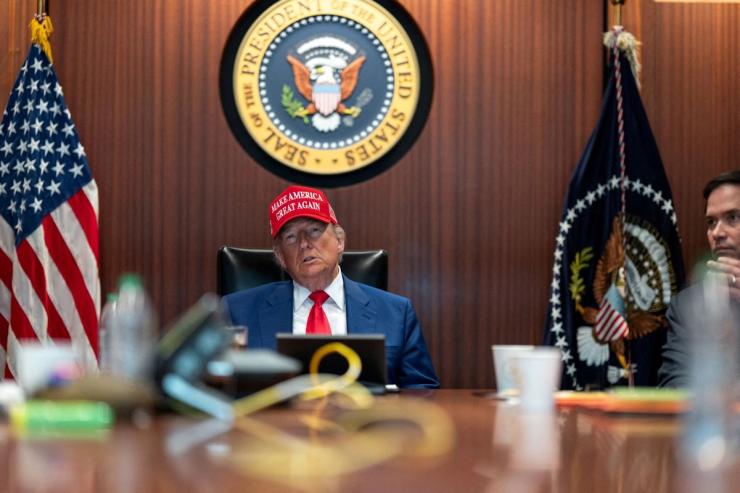Hadley’s view
So much for the TACO trade (Trump Always Chickens Out). Sunday’s B2 bombing raid on Iran’s nuclear infrastructure was a clear message: whatever else he may be, Trump isn’t a chicken. He called time on what five US administrations and countless European negotiators couldn’t resolve but all agreed on: that Iran cannot be allowed to obtain a nuclear weapon.
While there’s debate about the effectiveness of the strikes — few of us are privy to the intelligence on what actually happened deep in the mountains of Fordo — the aftermath is starting to emerge. Tehran lobbed symbolic retaliation on US bases in Iraq and Qatar, a ceasefire between Israel and Iran began on Tuesday, and diplomacy to reach a permanent nuclear agreement may soon resume.
The situation has changed, but this isn’t shaping up to be what many feared: a forever war. How we got here is worth reviewing.
When the International Atomic Energy Agency confirmed what many suspected — that Iran was lying to inspectors again and enriching uranium to near-weapons-grade levels — few were surprised. Tehran enriched uranium to 60% purity, a level it was repeatedly told not to reach. Years of diplomacy, bad deals, economic hardship, sanctions, and even Trump’s “maximum pressure” failed to convince Iran’s government. The use of force was a last ditch effort to end a nuclear program built and backed by a government intent not only on terrorizing its own people but also on exporting mayhem abroad.
Trump’s harshest criticism came from within the US, even from his own supporters. This wasn’t echoed by European countries, which support Israel’s right to exist and condemn Tehran’s longtime commitment to extinguish the Jewish state. While Gulf countries distanced themselves from the US strikes and have made diplomatic gestures to Iran in recent years, those efforts were more about protecting themselves from the fallout than a strategic pivot. Gulf monarchies depend on the safety and stability of their region for economic and political power, and have long condemned Iran’s attempts to destabilize them and the rest of the Middle East.
It’s now clear that Trump’s strike wasn’t about regime change. It was an application of his doctrine for why and how America must engage. No more forever wars — but instead, swift, decisive action to take out an imminent threat to America and its allies.
Hadley Gamble is a Semafor contributor and former anchor with CNBC covering energy, politics, and business.
Room for Disagreement
US intelligence assessed that Iran’s leader still hasn’t decided to build a nuclear weapon, but Trump’s strikes may shift that calculus, The New York Times reports. Critics argue Tehran still has the expertise to rebuild its nuclear program and may now accelerate efforts to weaponize its uranium stockpile, drawing a lesson from Iraq, Libya, and Ukraine: countries without a nuclear deterrent risk attack. Supporters of the strike question whether Trump is prepared for a “sustained duel” with Tehran, now that the supreme leader is assured of Washington’s “limited response,” wrote Reuel Marc Gerecht and Ray Takeyh in The Wall Street Journal. “If America declares another mission accomplished and doesn’t strike back for Iran’s attack on its bases, then it will confront a more truculent Iran,” they argue.



